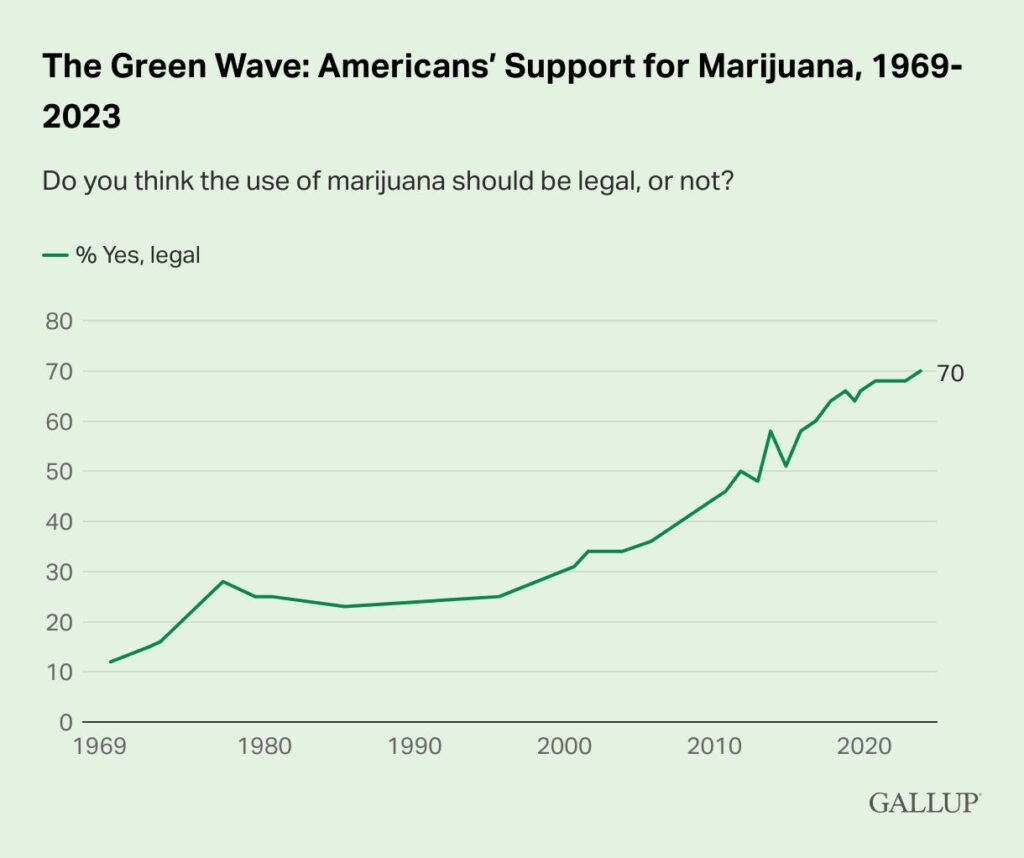For decades, about the only way that a law school student in the United States would be taught about cannabis policy came in the form of lessons based in criminal law. Starting in 1937, the United States completely prohibited the cannabis plant and instituted penalties for people caught with it.
However, in 2024 law school curriculums have evolved a great deal when it comes to cannabis. These days a growing number of ABA-accredited law schools are offering courses focused on the emerging cannabis industry.
The spread of cannabis policy modernization in the U.S. is paralleled by the rise in law schools offering cannabis courses. The legal cannabis industry touches on a number of legal topics, from contractual law to tax law, so it makes sense that law schools would cover cannabis industry law.
Cannabis sales in the United States are expected to reach $31.4 billion in 2024 according to a recent analysis by Whitney Economics. Additionally, leading cannabis jobs platform Vangst, in conjunction with Whitney Economics, estimates that the legal cannabis industry now supports 440,445 full time-equivalent cannabis jobs in the United States.
Whitney Economics also projects the following legal cannabis sales figures in the United States for the coming years:
- 2024: $31.4 billion (9.1% growth from 2023)
- 2025: $35.2 billion (12.1% growth from 2024)
- 2030: $67.2 billion
- 2035: $87.0 billion
The emerging legal cannabis industry is big business in the United States, and so it is very logical that law schools would educate students about the topic. Demand for legal services in the cannabis industry will only grow for the foreseeable future.
According to a recent article in the ABA Journal, “45 law schools—or about 22% of the 197 ABA-accredited schools—offered a combined total of 47 cannabis law courses.” The article references the results of research conducted by Ohio State University Moritz College of Law’s Drug Enforcement and Policy Center.
The research by Ohio State University Moritz College of Law’s Drug Enforcement and Policy Center determined that just four years ago the amount of law schools offering cannabis industry-focused law courses was nearly half (24) of what it is now.
“We desperately need lawyers who understand as much of this as possible because all of those areas need educated, top-flight lawyers to do the work well,” says Douglas Berman, a professor and executive director of the OSU Moritz College of Law’s Drug Enforcement and Policy Center, according to the ABA Journal.
According to the Pew Research Center, “Since Colorado and Washington became the first states to pass legislation in 2012, there are now 24 states (plus the District of Columbia) that have legalized the recreational use of marijuana as of February 2024. Another 14 states allow the drug for medical use only.”
The Pew Research Center has determined that:
- 79% of Americans live in a county with at least one cannabis dispensary.
- There are nearly 15,000 cannabis dispensaries in the United States.
- California alone has 3,659 cannabis dispensaries
- Oklahoma has the most cannabis dispensaries per capita in the U.S. (36 dispensaries for every 100,000 Oklahoma residents)
Cannabis remains prohibited at the federal level in the United States, however, Gallup found in 2023 via its annual survey that 70% of U.S. voters support ending federal cannabis prohibition.


